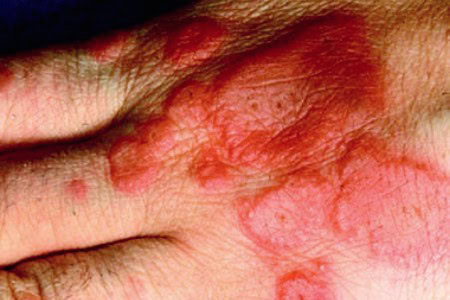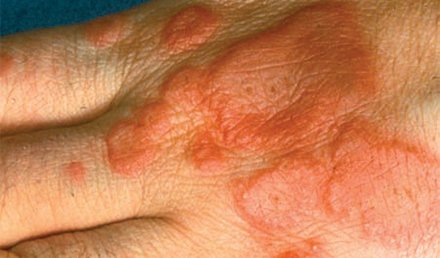JOHN SHUFELDT, MD, JD, MBA, FACEP It’s game day. The trial begins today and your fate will be decided by a jury of your “peers.” Never mind the fact that none of them are physicians, only three have been to college, and two did not even graduate from high school; in the eyes of the law, they are your peers and will be the ones to decide if your care met the standard of care. …
Read MoreReturn-on-Investment in Occupational Health Sales
FRANK H. LEONE, MBA, MPH It began with two cavemen, or even before: Bartering. Fair trade. A transaction where both parties (theoretically) walk away satisfied that they got a positive return on their exchange. This concept persists to this very day. At a minimum, your urgent care clinic should understand return-on-investment (ROI) for two occupational health staples: work injury management and pre-placement physical examinations. Work Injury Management Employers need to get workers back to work …
Read More
Are DNA Relationship Testing Services a Good Match for Urgent Care?
Urgent message: The last 10 years have seen a dramatic increase in DNA parentage testing. Yet, the DNA testing industry remains, in essence, unregulated. Can urgent care providers fulfill a need for ethical and clinically reliable access, while receiving direct and immediate payment for your services? Elizabeth Panke, MD, PhD For many generations, defining the parent-child relationship was easy. The woman who gave birth to the child was the child’s legal mother; to a large …
Read MoreThe Road to Recognition
Lee A. Resnick, MD, FAAFP The recent announcement that the American Board of Medical Specialties approved Hospice and Palliative Care as a new subspecialty appears to ring in a new era of subspecialty acceptance. It was once thought that subspecialties found their homes with one sponsor; Cardiology, Gastroenterology, and Pulmonology were all within the realm of Internal Medicine. Pediatrics followed suit with its own versions of these subspecialties. There was no con-joint sponsorship from multiple …
Read MoreQuality of Care
KENNETH V. ISERSON, MD, MBA, FAAEM, FACEP “Quality of care,” due to both its nebulous nature and its vital importance, has always been a much-discussed issue in medical ethics. For example, the Codes of Hammurabi, the Hippocratic writings, and other early medical treatises discuss quality of care. Today, the changing goals and priorities within healthcare systems and the ongoing attempts to restructure local, state, and national health treatment delivery systems have increased the importance of …
Read More
Management of Erythema Multiforme in the Urgent Care Setting
Urgent message: With the increasing use of medications, especially antibiotics, more and more patients are presenting to urgent care with erythema multiforme. Correct diagnosis and identification of the underlying cause can result in rapid clinical resolution of the lesions. Shailendra Kapoor, MD Descriptions of erythema multiforme (EM) first appeared in the work of Albert and Bazin in 1822, but it was not until 1866 that von Hebra categorized these erythematous eruptions and labeled them “erythema …
Read More
May 2007
Developing Data: May, 2007
In this issue: Who’s treating whom? Physicians are at the forefront of urgent care, both as practitioners and as business owners. They’re not the only ones treating patients, however; perhaps more than in any other practice environment, mid-level providers physician assistants and nurse practitioners, in particular are charged with administering care to patients. It’s a good thing physicians have well-trained assistance, too, as respondents to the survey report- ed that their urgent care facilities see …
Read MoreAbstracts In Urgent Care: May, 2007
Are Cardiac Risk Factors of Value in ED Diagnosis of ACS? Citation: Zane RD. J Watch Emerg Med. March 9, 2007. URL: http://emergency-medicine.jwatch.org/cgi/content/ full/2007/309/3?q=etoc The Role of Cardiac Risk Factor Burden in Diagnosing Acute Coronary Syndromes in the Emergency Department Setting Citation: Han JH, Lindsell CJ, Storrow AB, et al. Ann Emerg Med. 2007;(2):145-152. Epub Dec 4, 2006. URL: http://www.ncbi.nlm.nih.gov/entrez/query.fcgi?cmd=retrieve& db=pubmed&list_uids=17145112&dopt=Abstract Key point: Cardiac risk factors are of no discriminatory value in emergent evaluation …
Read MoreClinical Challenge: May, 2007
The patient is a 2½-year-old female who presented after falling, unobserved, from an unknown height with tenderness and swelling around the elbow. Neurovascular exam was normal. View the x-ray taken (Figure 1) and consider what your diagnosis and next steps would be. Resolution of the case is described on the next page. Resulotion The correct diagnosis is a supracondylar fracture; note the loss of the normal angle at the distal humerus. The injury was managed …
Read More